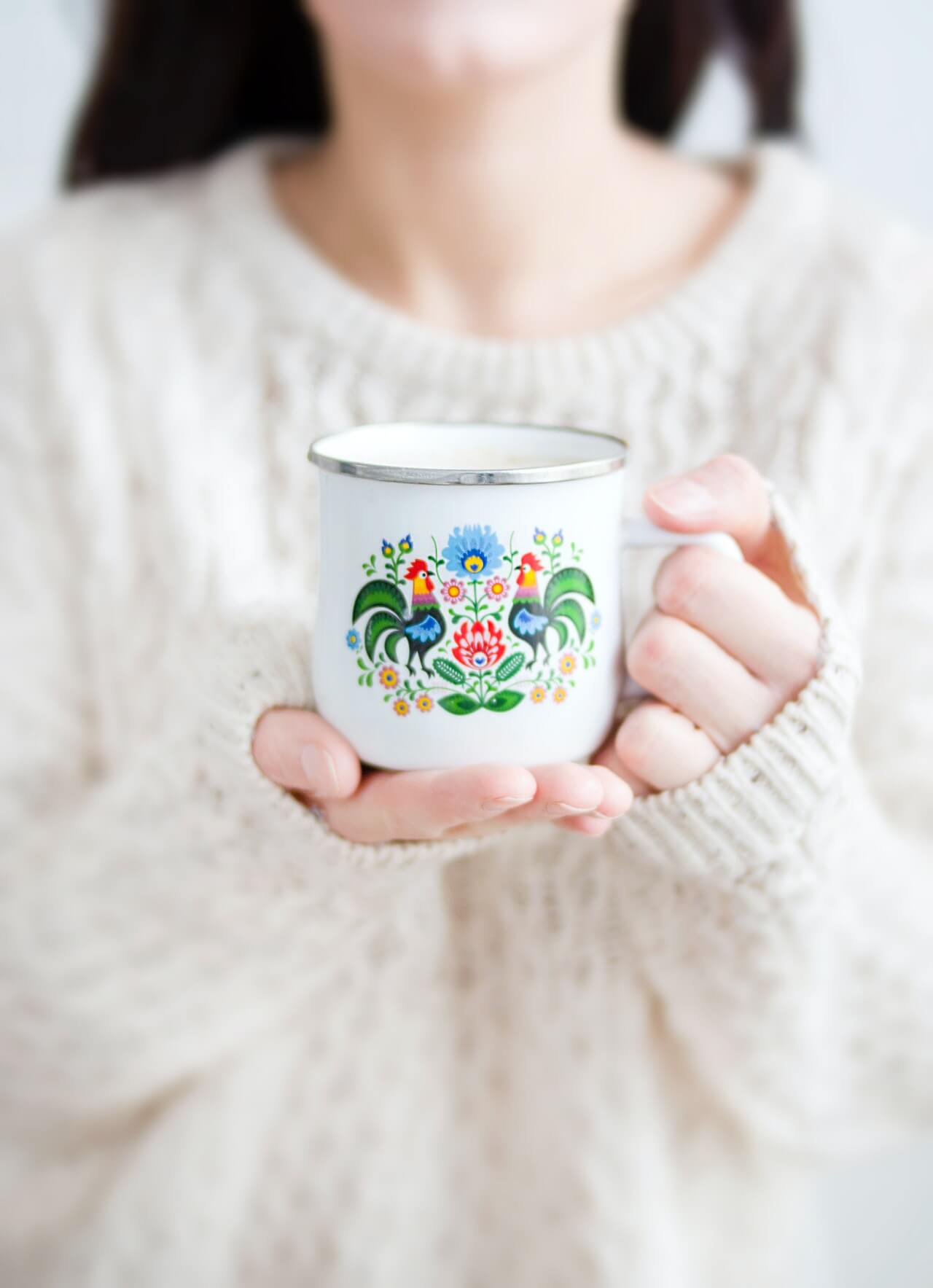In the hustle and bustle of our daily lives, it's too easy to neglect our most important relationship—the one with ourselves. You might think you should be critical of yourself to motivate yourself to change. However, the research shows a huge correlation between learning to be self-compassionate and loving despite challenges and stressors.
Cultivating self-compassion and self-love are crucial steps toward holistic health in a world that often prioritizes achievement over inner peace. We aim to illuminate the path toward cultivating a kinder, gentler relationship with yourself—a relationship built on understanding, acceptance, and unconditional love.
{{mid-cta}}
Understanding Self-Compassion and Self-Love
Self-compassion means treating yourself with non-judgemental kindness even when feeling “less than,” like a failure or general suffering. Self-compassion allows you to recognize that, as humans, we are all imperfect. Self-love, on the other hand, means acting the same way towards yourself whether everything goes well or when you have a difficult time. While they seem similar, they have distinct differences when you practice them. Even if you make a mistake or fail, self-love means giving yourself the same compassion and kindness you’d give to a close friend.
Self-compassion and self-love are different from self-esteem. Self-esteem encompasses one's overall evaluation of their worth, often influenced by achievements, social comparison, and external validation. In contrast, self-compassion fosters an internal sense of self-acceptance and resilience in the face of failure. Self-esteem hinges on external factors and may fluctuate based on success or social approval. Ultimately, both are crucial for positive psychological well-being. Yet self-compassion emphasizes kindness and acceptance, whereas self-esteem revolves around external validation.
Key Components of Self-Compassion and Self-Love
Self-compassion and self-love are grounded in a few key components for fostering a positive relationship with yourself. Central to both concepts is the practice of self-kindness, embracing one's humanity, and mindfulness.
Self-Kindness
As opposed to self-judgment or criticism, being compassionate and gentle with yourself in times of mistakes, inadequacy, or suffering, rather than resorting to harsh self-criticism or judgment. Embracing kindness and understanding toward ourselves during challenging moments or when circumstances are less than ideal.
Shared Humanity
Embrace your humanness. This means recognizing that imperfection and vulnerability are inherent aspects of being human. Personal inadequacy and suffering are universal experiences that help you realize you are not alone in your mistakes and vulnerabilities.
Mindfulness
Be mindful and receptive to your emotions without attempting to suppress or ignore them. You can do this by cultivating a non-judgmental awareness of your experiences, noticing your emotions, and avoiding self-identification with reactionary responses to emotional mind-drama.
<p class="pro-tip"><strong>Also Read: </strong><a href="can-stress-make-you-sick">Can stress make you sick?</a>.</p>
What Are the Benefits of Self-Compassion and Self-Love?

Practicing self-compassion and self-love can lead to positive health benefits, both mental and physical. Here are some of the key advantages to begin practicing these skills.
- Reduced Stress and Anxiety: Self-compassion helps individuals respond to stressful situations with kindness and understanding, leading to lower stress and anxiety levels. Some research suggests improved depressive symptoms with a self-compassion practice
- Emotional Resilience: Self-compassionate folks are better able to bounce back from setbacks and failures, fostering emotional resilience and healthy coping skills
- Better Relationships: Practicing self-compassion allows for more compassion and empathy toward others, leading to improved relationships and social support
- Physical Health Benefits: Research suggests that self-compassion may positively affect physical health, such as lowering blood pressure and improving immune health, possibly due to reducing stress levels
- Increased Motivation: Contrary to the misconception that self-compassion leads to complacency or “laziness,” being kind to yourself actually fosters a nurturing environment that encourages growth and self-improvement without harsh criticism
Practical Strategies for Cultivating Self-Compassion
Embracing self-compassion means you’re invested in being kind to yourself even when things aren’t going your way. Here are some ways to embrace self-compassion.
- Remind yourself that what you’re going through is difficult, stressful, etc
- Consider how you might speak to a friend or a family member if they were in a similar situation
- Carve out time for yourself, like reading a book, taking a walk, drawing a bath, or cooking a nice meal
- Write a love letter to yourself about your triumphs, positive experiences, and challenges you’ve overcome
- Engage in mindfulness exercises to become more aware of your thoughts, feelings, and bodily sensations without judgment
- Close your eyes, place your hand on your heart, offer yourself a comforting touch, and acknowledge your struggles with kindness and understanding
- Remind yourself that everyone experiences difficulties and setbacks, and you are not alone in your struggles
- Avoid setting overly high standards that may lead to self-criticism and disappointment
- Regularly plan activities that bring you joy, relaxation, and fulfillment, such as spending time in nature, practicing hobbies, or connecting with loved ones.
- Remember to have “HOPE”: “Hold on, pain ends"
Embracing Self-Love
Embracing self-love involves adopting practices and attitudes that foster a deep sense of appreciation, acceptance, and care for oneself. Here are some ways to embrace self-love.
- Treat yourself with kindness, understanding, and patience, especially during challenging times
- Replace self-criticism with self-affirming statements that emphasize your strengths and value as a person
- Learn to say no to activities or commitments that drain your energy or undermine your self-care
- Keep a gratitude journal or engage in daily gratitude practices to nurture a positive outlook
- Acknowledge and celebrate your achievements, no matter how small they may seem
- Understand that making mistakes is a natural part of the human experience and use them as opportunities for learning and growth
- Surround yourself with supportive and uplifting people who value and appreciate you for who you are. Similarly, distance yourself from relationships or environments that bring negativity or unnecessary criticism
- Offer yourself words of encouragement, support, and understanding in times of need
- Celebrate your individuality and embrace the qualities that make you unique
Remember that embracing self-compassion and self-love is an ongoing journey that requires practice, patience, and self-awareness. It might feel foreign or uncomfortable at first to treat yourself this way. Be gentle with yourself as you navigate this process, and remember that you deserve love, kindness, and compassion from yourself and others.
<p class="pro-tip"><strong>Recommended Reading: </strong><a href="how-to-stop-stress-eating">Stop Stress Eating: 13 Tips to Gain Control</a>.</p>
Resources for Further Exploration

Exploring self-compassion and self-love can be a transformative journey. Here are some resources to deepen your understanding and practice:
Books
- Self-Compassion: The Proven Power of Being Kind to Yourself by Kristin Neff
- The Mindful Self-Compassion Workbook: A Proven Way to Accept Yourself, Build Inner Strength, and Thrive by Kristin Neff and Christopher Germer
- Radical Acceptance: Embracing Your Life With the Heart of a Buddha by Tara Brach
- The Gifts of Imperfection: Let Go of Who You Think You're Supposed to Be and Embrace Who You Are by Brené Brown
- Love Yourself Like Your Life Depends On It by Kamal Ravikant
Workshops
- Kristin Neff's Self-Compassion.org offers various resources, including guided meditations, exercises, and information about workshops and online courses:
- The Center for Mindful Self-Compassion offers workshops, retreats, and online courses on self-compassion and mindfulness
Apps
- Insight Timer: This meditation app offers guided meditations on self-compassion, mindfulness, and self-love
- Calm: Calm provides guided meditations, sleep stories, and mindfulness exercises that can help cultivate self-compassion and relaxation
- Headspace: Headspace offers guided meditations and mindfulness practices that promote self-awareness and self-compassion
Podcasts
- Self-Compassion with Dr. Kristin Neff is a podcast that offers discussions and meditations about self-compassion and mindfulness
- Unlocking Us with Brené Brown is a podcast that explores topics related to vulnerability, courage, and embracing imperfection
Other Resources
- The Greater Good Science Center at UC Berkeley offers articles, videos, and exercises related to self-compassion and well-being
- Psychology Today's website features numerous articles and resources on self-compassion, self-love, personal growth, and therapists and counselors who can support you along your journey
Exploring these resources can provide valuable insights, practices, and support as you cultivate self-compassion and self-love. Remember to approach this journey with kindness, patience, and curiosity, and be open to discovering new ways to nurture and care for yourself.
Learn More About Health and Wellbeing With Signos’ Expert Advice
The bottom line: gaining insight into self-discovery can empower you to take greater control of your health. This understanding plays a positive role in managing your blood sugar levels while you concentrate on improving your health and wellness.
The expert guidance provided by Signos can significantly benefit your health, whether your goal is weight loss or simply feeling better. Explore more about nutrition and adopt healthier habits by delving into Signos' blog, or discover if Signos' program is right for you through a brief quiz.
<p class="pro-tip"><strong>Learn More: </strong><a href="holiday-stress">Self-Care Ideas to Ease Stress</a>.</p>
- Item 1
- Item 2
- item 3
Topics discussed in this article:
References
1, 4. Muris P, Otgaar H. Self-Esteem and Self-Compassion: A Narrative Review and Meta-Analysis on Their Links to Psychological Problems and Well-Being. Psychol Res Behav Manag. 2023 Aug 3;16:2961-2975.
2. Harris, M. A., & Orth, U. (2020). The link between self-esteem and social relationships: A meta-analysis of longitudinal studies.Journal of Personality and Social Psychology, 119(6), 1459–1477.
3, 8, 9, 10, 11. Self-compassion.org. Accessed February 5, 2024.
5. Al-Refae, M., Al-Refae, A., Munroe, M., Sardella, N. A., & Ferrari, M. (2021). A self-compassion and mindfulness-based cognitive mobile intervention for depression, anxiety, and stress: Promoting adaptive emotional regulation and wisdom. Frontiers in Psychology, 12, 839.
6. Barczak, N., & Eklund, R. C. (2018). The moderating effect of self-compassion on relationships between performance and subsequent coping and motivation. International Journal of Sport and Exercise Psychology, 1-13.
7. Hablado, K., & Clark, M. (2020). A State of De-Stress: Examining the relationship between subjective well-being, self-compassion, and empathy. Advances in Social Sciences Research Journal, 7(5), 412-426.


.jpg)





























